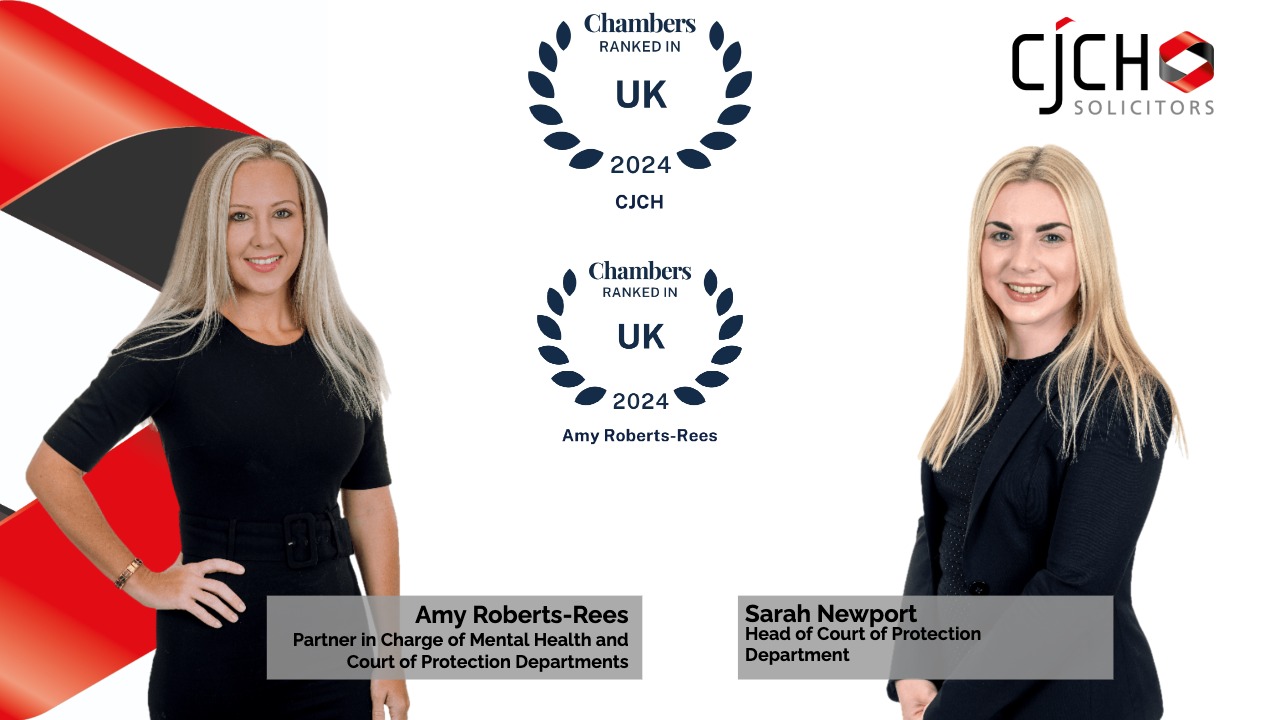Answers by Sarah Perkins
Sometimes the more difficult something is to talk about, the more important it is that we do. At CJCH, we aim to be as accessible and supportive as we can be, and to assist our clients in their times of need.
 Disturbingly, domestic abuse cases have increased over the coronavirus lockdown period, but the team at Women’s Aid said it best when referring to their recent survey that “Covid-19 does not cause domestic abuse, only abusers are responsible for their actions.” However, they found that 76.1% of survey takers said they were having to spend more time with their abusers, and a number of those already experiencing abuse reported that the abuse had become worse during this time (via Womanaid.org.uk).
Disturbingly, domestic abuse cases have increased over the coronavirus lockdown period, but the team at Women’s Aid said it best when referring to their recent survey that “Covid-19 does not cause domestic abuse, only abusers are responsible for their actions.” However, they found that 76.1% of survey takers said they were having to spend more time with their abusers, and a number of those already experiencing abuse reported that the abuse had become worse during this time (via Womanaid.org.uk).
Our head of Family and Matrimonial Law team, Sarah Perkins, recently participated in the Law Society’s twitter forum (Solicitor Chat) on Domestic Abuse. We wanted to share this information with everyone in the hopes that it could help more people. Before we outline the legal aspects to consider we wanted to remind you that if you or someone you know is in danger, or being abused, there are support organisations in place to assist you:
-
-
- Emergency: 999 You are always able to contact the police for assistance
- Refuge: 0808 2000 247 (The National Abuse helpline)
- Women’s Aid (online support options)
- Atal Y Fro: 01446 744755 (immediate help in Wales)
Q1: How can a solicitor help victims of domestic abuse during the Coronavirus pandemic?
Sarah’s Feedback: Although many offices may be closed during this pandemic, we as solicitors are still very much available and working to assist victims of domestic abuse. We are offering virtual consultations by way of telephone or video calling applications and are contactable by email. Depending on an individual’s situation, we can make applications to the Court for Non-Molestation Orders and Occupations Orders on an emergency basis. We are also able to provide contact details for and assist in putting an individual in touch with Domestic Violence Agencies and other vital support services in their local area.
Q2. What are occupation orders and non-molestation orders and how can they help to protect someone suffering from domestic abuse?
Sarah’s Feedback: Both Orders are key in helping to protect victims of domestic violence, including individuals and any relevant children who are considered to be at risk. Relevant children are children under the age of 18 years who live with or are expected to live with either party or who are the subjects of any Family Court Proceedings linked to the application or any other child whose interests the Court deems relevant.
A Non-Molestation Order is a protective order and its aim is to clearly set out what a person must not do to another. An Order can prohibit a person from using or threatening physical violence and from harassing, pestering or intimidating the Applicant. Non-Molestation Orders can be very specific and prohibit a person from entering a certain area, for example, the street in which the Applicant lives or their place of work. It can also specifically set out that a person must not contact the Applicant or encourage anyone else to do so on their behalf, either directly or indirectly via telephone, text message, email and other social media platforms.
The Court must be satisfied that the Applicant and any named relevant children would be at risk if an order were not made and that the health, safety and well-being of the Applicant and any relevant children require the making of an Order.
Non-Molestation Orders are made for a specified period of time, usually 6 months. An application can be made to the Court towards the end of that term should further protection be required.
An Occupation Order allows the Court to decide who should live, or not live, in the home or any part of it. The Respondent could effectively be required to leave the home because of his/her violence or behaviour towards the Applicant or the effect that his/her presence is having on the children. When deciding whether or not to make an Occupation Order, the Court must consider all the circumstances, including:
-
-
- The housing needs and housing resources of each of the parties and of any relevant child;
- The financial resources of each of the parties;
- The likely effect of any Order (or of any decision by the Court not to exercise its powers) on the health, safety or well-being of the parties and of any relevant child;
- The conduct of the parties in relation to each other, and:
-
- Whether the Applicant or any relevant child is likely to suffer significant harm attributable to the conduct of the Respondent, and;
- Whether the harm likely to be suffered by the Respondent or any relevant child if the provision is included is as great or greater than the harm attributable to the conduct of the Respondent which is likely to be suffered by the Applicant or any relevant child if the provision is not included.
An Occupation Order can also include arrangements for payment of the mortgage and/or utilities relating to the property for a fixed period of time.
Q3: What happens if someone breaks the rules of an injunction or order?
Sarah’s Feedback: Breach of a Non-Molestation Order is a criminal offence and should be reported to the Police immediately. The person in breach of the Order can be immediately arrested and if found guilty of the offence could face up to five years in prison. Alternatively, an application could be made to the Family Court that made the order, to have the Respondent for contempt and arrested and / or punished. If the Respondent is found to have breached the order they may be sent to prison, fined or be given a suspended sentence of imprisonment. The Family Court does not, however, have the range of sentencing powers that criminal courts have.
If a power of arrest has been included in an Occupation Order, Police can arrest. Otherwise, breach of an Occupation Order is contempt of court and an application should be made to the Family Court that made the order, as set out above.
Q4: What is the application process for an injunction or order and how can a solicitor help?
Sarah’s Feedback: In order to apply for a non-molestation or occupation order you must be associated to the Respondent. You are associated if you and the Respondent:
-
-
- are or were ever married or engaged to be married
- are or were ever in a civil partnership or had agreed to form a civil partnership
- are or were living together (this includes same-sex and opposite-sex couples)
- live or have lived in the same household, for example as a flatshare (but not as a tenant, boarder, lodger or employee)
- are relatives including parents, children, grandparents, grandchildren, siblings, uncles, aunts, nieces, nephews or first cousins (whether by blood, marriage, civil partnership or cohabitation)
- have a child together or have or had parental responsibility for the same child
- are parties to the same family proceedings for the same child
- are or were in an intimate personal relationship of significant duration
There are two ways of obtaining a Non-Molestation Order, “without notice” and “on notice”. “Without notice” applications are emergency applications in cases where the risk is imminent or there is a real risk that the Respondent will cause you further harm if he or she were to know that you were applying for an Order. There is no Court Fee payable on application
A standard application form (FL401) must be completed together with a witness statement giving details of your relationship, any relevant children, past history of violence and the events which led you to make the application. The statement should also set out what you want the order to do. The documents are filed at Court. If the application is “without notice” then the first hearing will take place almost immediately without the Respondent’s knowledge and an interim Order can be made with arrangements for a return hearing usually within a week or so. Both parties attend the return hearing which gives an opportunity for the Court to review the position and ascertain whether or not the Respondent wishes to challenge the Order. The Order must be personally served upon the Respondent and will only be effective and enforceable once served. In the event that the Respondent wishes to challenge then the Court will make various directions for further documentation and set the matter down for a Contested Final Hearing at which both parties will be expected to give evidence, following which Final Orders will be made.
If the application is not considered to be an emergency application then the same application form and statement is filed at Court but both parties are informed of the Hearing date and the Respondent is served with the application in advance of the hearing taking place.
Solicitors will be able to provide advice to ensure that you are entitled to make the application, advise upon your prospects of success, that the correct applications are being made following the correct procedures. We will complete the Application and prepare the witness statement, file the application and Court and represent you at the hearing. Where necessary, we would arrange service of the Orders.
Q5: What Legal Aid is available for domestic abuse victims?
Sarah’s Feedback: Legal Aid is available for domestic abuse victims however, subject to a means and merits test, criteria set by the legal aid agency. An individual’s financial circumstances require assessment.
If you need help, or would just like to discuss your options, contact the CJCH Family and Matrimonial Law team, full contact details here.







 Disturbingly, domestic abuse cases have increased over the coronavirus lockdown period, but the team at
Disturbingly, domestic abuse cases have increased over the coronavirus lockdown period, but the team at 







